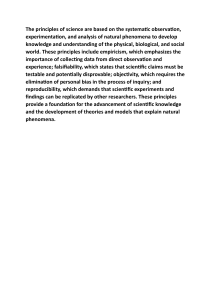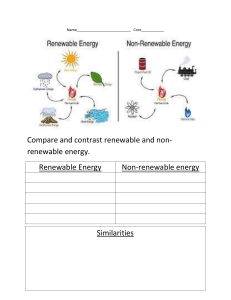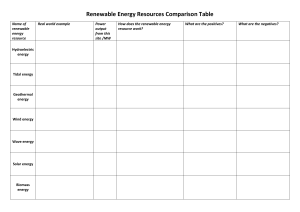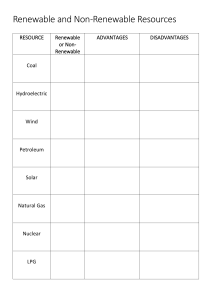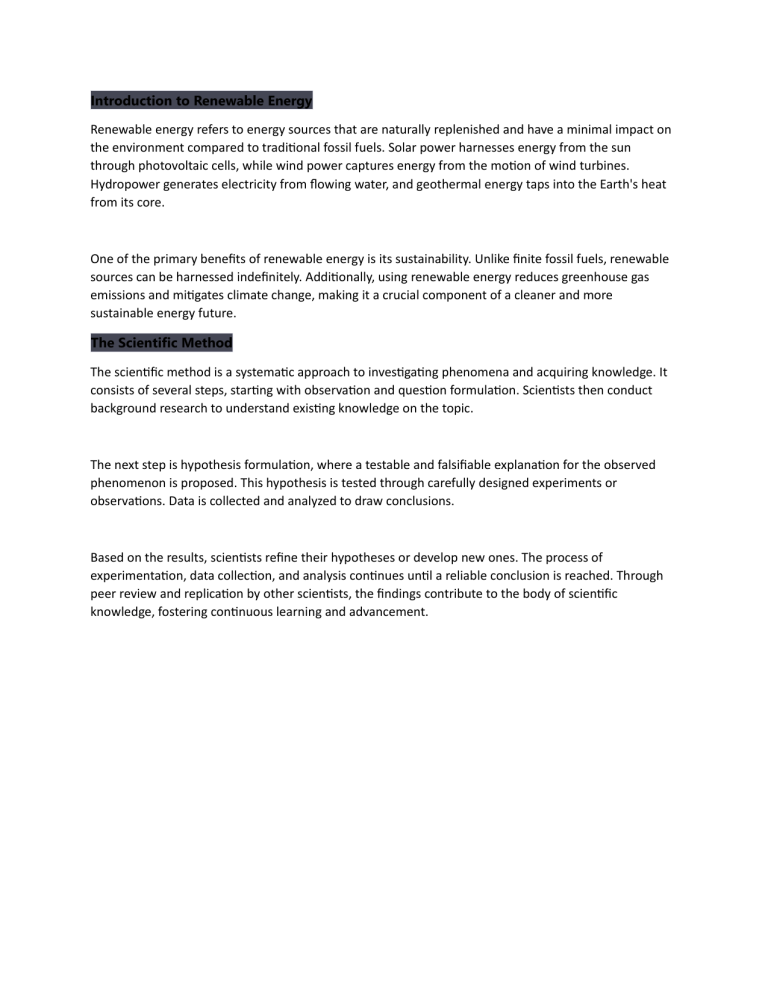
Introduction to Renewable Energy Renewable energy refers to energy sources that are naturally replenished and have a minimal impact on the environment compared to tradi�onal fossil fuels. Solar power harnesses energy from the sun through photovoltaic cells, while wind power captures energy from the mo�on of wind turbines. Hydropower generates electricity from flowing water, and geothermal energy taps into the Earth's heat from its core. One of the primary benefits of renewable energy is its sustainability. Unlike finite fossil fuels, renewable sources can be harnessed indefinitely. Addi�onally, using renewable energy reduces greenhouse gas emissions and mi�gates climate change, making it a crucial component of a cleaner and more sustainable energy future. The Scientific Method The scien�fic method is a systema�c approach to inves�ga�ng phenomena and acquiring knowledge. It consists of several steps, star�ng with observa�on and ques�on formula�on. Scien�sts then conduct background research to understand exis�ng knowledge on the topic. The next step is hypothesis formula�on, where a testable and falsifiable explana�on for the observed phenomenon is proposed. This hypothesis is tested through carefully designed experiments or observa�ons. Data is collected and analyzed to draw conclusions. Based on the results, scien�sts refine their hypotheses or develop new ones. The process of experimenta�on, data collec�on, and analysis con�nues un�l a reliable conclusion is reached. Through peer review and replica�on by other scien�sts, the findings contribute to the body of scien�fic knowledge, fostering con�nuous learning and advancement.
